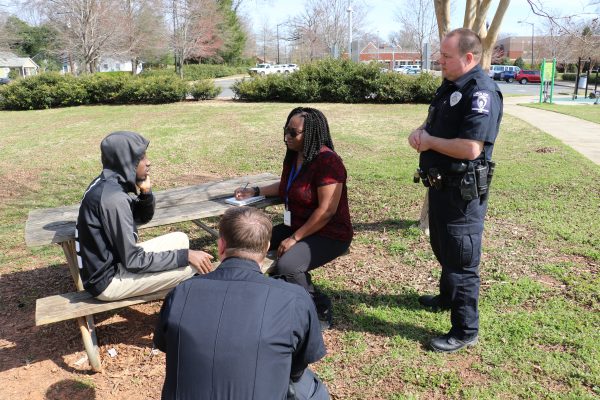
Since George Floyd’s murder in Minneapolis over one year ago, police reforms across the country continue to make headlines and shift the meaning of public safety. One important reform area involves responding to community members with mental health crises. Police officers have sometimes been described as “street corner psychiatrists” because 10% – 40% of their total emergency calls involve persons with mental health concerns.
As communities increasingly recognize that police are not mental health professionals, they have begun partnering police with mental health professionals to form Crisis Intervention Teams (CITs), sometimes known as Crisis Response Teams, or Co-Response Teams.
‘CIT’ Programs and Effectiveness
CITs are joint responses to mental health crises by multidisciplinary teams including police, mental health providers, social workers, and hospital emergency services which have three key features: 1) community collaboration 2) training for police, and 3) accessibility to mental health services.
- Sheryl Kubiak, Erin Comartin, Edita Milanovic, Deborah Bybee, Elizabeth Tillander, Celeste Rabaut, Heidi Bisson, Lisa Dunn, Michael J. Bouchard, Todd Hill, and Steven Schneider. 2017. “Countywide Implementation of Crisis Intervention Teams: Multiple Methods, Measures and Sustained Outcomes.” Behavior Sciences & the Law.
- Amy Watson & Anjali Fulambarker. 2012. “The Crisis Intervention Team Model of Police Response to Mental Health Crises: A Primer for Mental Health Practitioners.” Best Practices in Mental Health.
Social scientists are now evaluating the effectiveness and benefits of these programs. The National Alliance on Mental Illness reports over 2,700 CIT programs in different communities across the United States. Research has shown that these programs increase diversion from jails and prisons to mental health services by 11% – 22%, relieve police workloads by 27%, and reduce the likelihood of people with mental illness to be arrested by 11% – 12%. While these figures regarding CITs are promising as a short term intervention, future investments in long-term stabilization programs are needed to sustainably address mental health crises.
- Jacqueline B. Helfgott, Matthew J. Hickman, and Andre P. Labossiere. 2016. “A Descriptive Evaluation of the Seattle Police Department’s Crisis Response Team Officer/Mental Health Professional Partnership Pilot Program.” International Journal of Law and Psychiatry.
- Erin B. Comartin, Leonard Swanson, and Sheryl Kubiak. 2019. “Mental Health Crisis Location and Police Transportation Decisions: The Impact of Crisis Intervention Team Training on Crisis Center Utilization.” Journal of Contemporary Criminal Justice.
- Katie Bailey, Evan M. Lowder, Eric Grommon, Staci Rising, Bradley R. Ray. 2021. “Evaluation of a Police–Mental Health Co-response Team Relative to Traditional Police Response in Indianapolis.” Psychiatric Services.
- Michael T. Compton, Roger Bakeman, Beth Broussard, Dana Hankerson-Dyson, Letheshia Husbands, Shaily Krishan, Tarianna Stewart-Hutto, Barbara M D’Orio, Janet R Oliva, Nancy J Thompson, and Amy C Watson. 2014. “The Police-based Crisis Intervention Team (CIT) Model: II. Effects on Level of Force and Resolution, Referral, and Arrest.” Psychiatric Services.
- Katherine Beckett, Forrest Stuart, and Monica Bell. 2021. “From Crisis to Care.” Inquest.
Promising Practice
As a promising practice, CIT has evolved over recent decades and has been successful in promoting improvements in mental health responses, increased officer confidence for working with people experiencing a mental health crisis, and reduced frequency and length of detention. However, consistency across program elements within CITs is scattered and more exploration is needed. Future evaluation, standardization, and regulation of CITs is necessary.
- Sema A. Taheri. 2016. “Do Crisis Intervention Teams Reduce Arrests and Improve Officer Safety? A Systematic Review and Meta-Analysis.” Criminal Justice Policy Review.
Societal responses to mental health impact every person in the US – whether it is a neighbor across the street, a colleague, a friend, or a family member. Social science research is playing an important part in evaluating and refining policies and programs such as CITs. Rather than punishing mental crises, CITs view them through a treatment lens – fostering healing and restoration. While this early research shows the promise of CITs as a short term “first response” intervention, this research also suggests that “second response” investments in long-term mental health care are needed to equitably and sustainably address mental health crises.

Comments